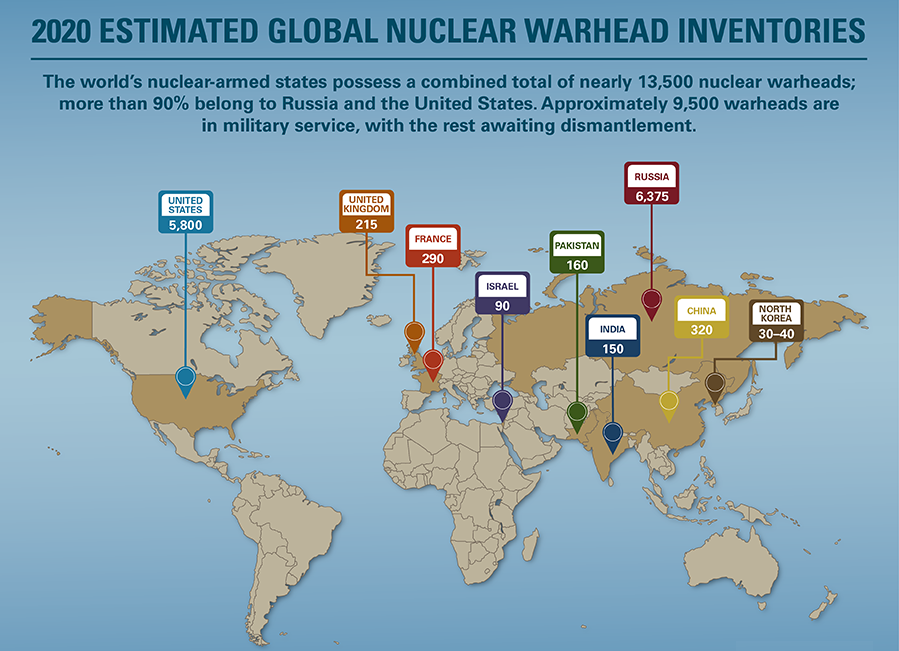International Relations
India’s Stand on Nuclear Weapons
- 07 Oct 2020
- 3 min read
Why in News
In the recent High-level Meeting to Commemorate and Promote the International Day for the Total Elimination of Nuclear Weapons (26th September 2020), India reiterated that nuclear weapons should be abolished in a step-by-step non-discriminatory process.
Key Points
- India remains committed to the policy of No First Use (NFU) against nuclear weapon states and non-use against non-nuclear-weapon states.
- The recent stand indicates that India has not revised its key principles regarding the NFU principle.
- In 2019, the Defence Minister hinted at a possibility of changing the principle by declaring that ‘circumstances’ will determine the “No First Use” stance.
- India is a key partner in global efforts towards disarmament and strengthening the non-proliferation order.
- India believes that nuclear disarmament can be achieved through a step-by-step process underwritten by a universal commitment and an agreed multilateral framework after meaningful dialogues among all States possessing nuclear weapons, for building trust and confidence.
- The Conference on Disarmament (CD) remains the “world’s single multilateral disarmament negotiating forum” and India supports holding of negotiations on a Comprehensive Nuclear Weapons Convention at the CD.
- India also remains committed to negotiations regarding a Fissile Material Cut-off Treaty (FMCT) in the CD.
- FMCT is a proposed international agreement that prohibits the production of two main components of nuclear weapons: highly-enriched Uranium and Plutonium.
- The consultations under the treaty laid down the most appropriate arrangement to negotiate a treaty banning the production of fissile material for nuclear weapons or other nuclear explosive devices.
- Global Efforts:
- The Treaty on the Non-Proliferation of Nuclear Weapons (NPT), the Comprehensive Nuclear-Test-Ban Treaty (CTBT) and the New START Treaty (between the USA and the Russian Federation) are few of the most important global efforts towards nuclear disarmament.
- India has not signed NPT and CTBT.
- The Treaty on the Non-Proliferation of Nuclear Weapons (NPT), the Comprehensive Nuclear-Test-Ban Treaty (CTBT) and the New START Treaty (between the USA and the Russian Federation) are few of the most important global efforts towards nuclear disarmament.
International Day for the Total Elimination of Nuclear Weapons
- In 2013, the UN General Assembly (UNGA) declared 26th September to be the International Day for the Total Elimination of Nuclear Weapons (Nuclear Abolition Day).
- Objective: Total elimination of nuclear weapons through enhancing public awareness and education about the threat posed to humanity by nuclear weapons and the necessity for their total elimination.
- Achieving global nuclear disarmament is one of the oldest goals of the United Nations.
- The UNGA resolution establishing the day, also calls for progress on a nuclear weapons convention, a global treaty involving the nuclear-armed states in the prohibition and elimination of nuclear weapons under strict and effective international control.







